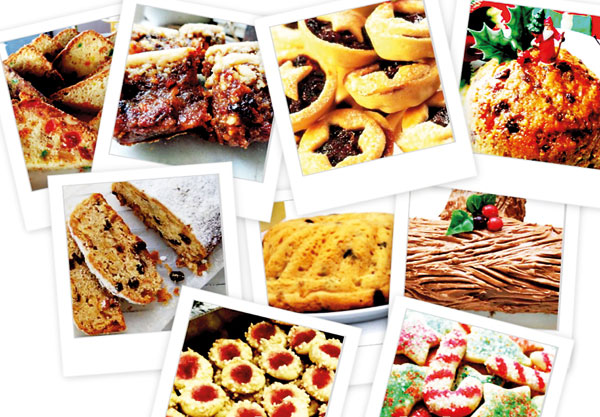Surviving the Christmas sugar rush
View(s):From our earliest childhood memories, Christmas has always been associated with sugary treats for most of us – Christmas cake, Love cake, Yule log, Breudher, Christmas pudding, all sorts of cookies and if you are one of those fortunate ones who has hampers delivered to your home, there will also be mince pies, stollen and chocolates.
 Indeed, it is so tempting to indulge, but do you really want to go through the festive season feeling sluggish, tired, irritable or moody? Here are some simple ways to survive the Christmas sugar rush. If we can start simple changes now, we can not only prepare for what is ahead but also continue the practice to our advantage without it being too overwhelming or leave us feeling deprived.
Indeed, it is so tempting to indulge, but do you really want to go through the festive season feeling sluggish, tired, irritable or moody? Here are some simple ways to survive the Christmas sugar rush. If we can start simple changes now, we can not only prepare for what is ahead but also continue the practice to our advantage without it being too overwhelming or leave us feeling deprived.
Stay hydrated
Drink plenty of water and stay hydrated. When you really crave something sweet, first drink a big glass of water and if the craving remains have a small quantity of something sweet- fruit is best as it will satisfy your need for both water and sugar. At most times we misjudge the body’s craving for water as a craving for food and more so sugary food. This is because without water the liver has a problem releasing its stores of glycogen into the bloodstream. This sets off an alarm in your body to get some sugary food which ends up as a false alarm and you crave for sweets that you do not really need.
Glycogen is a form of glucose that the body stores for future use. It is stored mainly in the liver and the muscles. When energy is needed, glycogen is quickly mobilized to deliver the fuel that the body needs. Also be careful of foods and beverages that can dehydrate you such as alcohol and coffee both of which are diuretics, cured meats, soy sauce and bouillon cubes all of which can be loaded with salt that can contribute to dehydration. Popcorn, fried foods and sugary drinks can also cause you to dehydrate faster.
Maintain a balance
Consciously maintain a balance in your meals and aim for a good healthy menu mix whenever you are not celebrating with friends and family. If curtailing all the sweets is hard, take meals balanced with protein, carbohydrates and healthy fats to stabilize the blood sugar and discourage sugar binging.You can also fill your fridge with fresh fruits that can be convenient and ready to grab when you get that craving for the sugary stuff.
Sweat it out
Get as many work-out sessions as possible by either going for regular brisk walks or to the gym. This will not only help keep your blood sugar levels in check but will also help drive out the stres. It is also good to have some extra holiday work-outs to compensate for the extra bit of sugar that you will be eating during the season.
Make it clear
Tell your family and friends that you are trying to minimize your consumption of sugary treats this year. When you tell people in advance, they will be cautious about offering you a second piece of Christmas cake or a second helping of that Christmas pudding.
| What is sugar? Sugar is a crystalline carbohydrate that makes foods taste sweet. From birth we recognize it as a pleasant taste. There are many different types of sugar, including glucose, fructose, lactose that occur naturally in fruits, vegetables, milk and dairy products and sucrose, which is known as table sugar. But many of the foods we consume contain ‘added’ sugars. The most common sources of added sugars include soft drinks, cakes, desserts, chocolate, candy, cookies and sweet pies and pastries. It is added sugars that have been cited as a contributor to many health problems.What does sugar do? Eating too much sugar can permanently damage your metabolism. The more often you indulge, the more insulin-resistant you can become. You can’t get your carbohydrate tolerance back; once it’s gone, it’s gone. The more sweets you eat over the course of your lifetime, the more likely it is that you will gradually lose your ability to process even healthier whole food sources of carbohydrates, fruits and vegetables. While some people are more susceptible to this process than others, we are all at risk. Numerous studies have associated sugar intake with increased ageing, high blood pressure, cardiovascular disease, obesity, dental problems and even cancer. This is why it is worth trying to limit how much of the sugary goodies you eat this Christmas as well as at all other times. It is all about will….. | |


